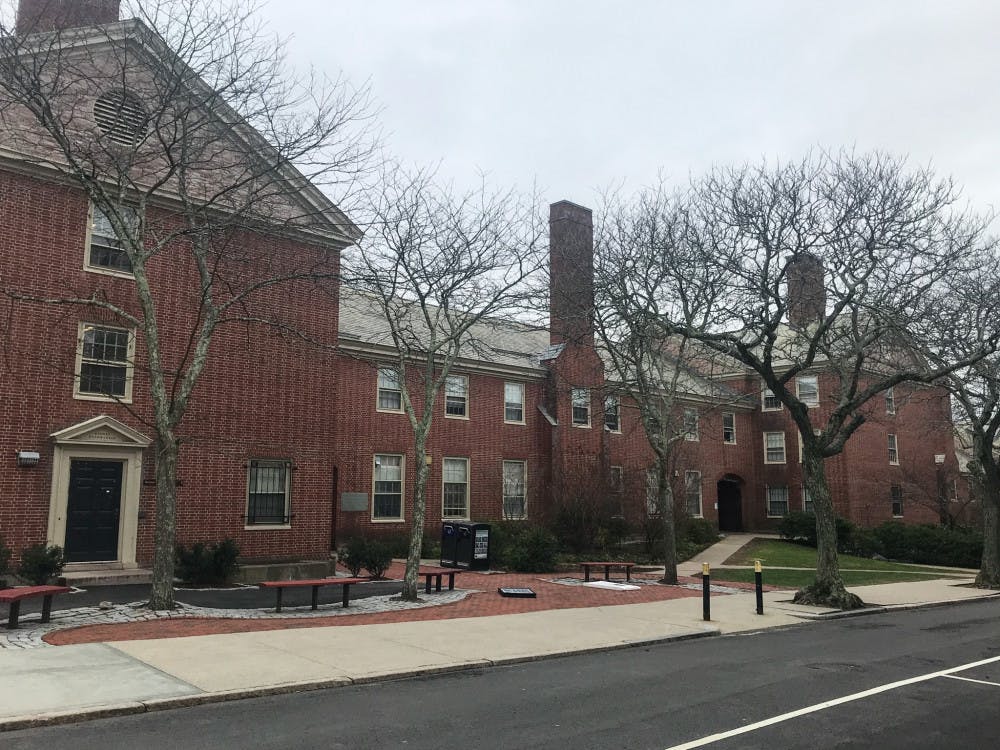Mason Thompson ’24 knew that starting college during a pandemic would be a challenge, but she had not anticipated just quite how difficult it would be.
“I wasn’t expecting to feel so constricted,” she said. “It was really hard for me, especially socially, because I am quite a bit of an introvert.”
Despite acclimating herself to College Hill for the first month and a half of the semester, stress, a limited social life and public health restrictions were taking a toll on Thompson’s mental health, driving her decision to finish the semester remotely at home.
Thompson is one of several first-year students who, after starting the semester on campus, chose to return home. As of March 31, 27 of the 150 students who have left campus to study remotely have been first-years, according to Associate Vice President for Campus Life and Dean of Students Koren Bakkegard.
“I don’t think I predicted just how bad the isolation would be,” said Em ’24, a first-year who asked to be identified only by their first name for fear of personal repercussions. They switched their location of study to remote mid-way through the semester. “I felt extremely lonely and isolated, and my mental health was really bad while I was (on campus).”
They explained that it was difficult to meet people on campus, and that as the weeks wore on, socializing became exhausting. “I felt it was much harder to sustain connections with people,” Em said. “I noticed that hanging out with people became almost a chore, or something on my to-do list I had to scratch off because I felt obligated.”
Though their mental health has improved since going home, Em said, “it’s still not ideal.”
“It doesn’t feel great to accept that my first semester in college is happening from my living room,” Em said.
Zachary Boston ’24 echoed Em, and said that a semester under COVID-19 is more challenging for first-years because, unlike sophomores or juniors, they do not have established friend groups.
“It was difficult for me because I am a pretty extroverted person, and in an environment where you can’t be extroverted,” said Boston, who decided to complete the semester remotely to be closer to his support system and improve his mental and physical health.
Still, Boston believes that the University did its best to try to support students through the difficult and unprecedented transition, he said.
“The transition to college can be difficult for anyone, and the class of 2024 has certainly faced the additional challenge of adjusting to college in the midst of a global pandemic,” wrote Anja Lee, assistant dean of the college for the first-year and sophomore experience, in an email to The Herald.
“To any first-year students who are struggling, please know that we hear you, we see you and we are here and available to support you,” Lee wrote, through resources such as Counseling and Psychological Services and Student Services.
But some students encountered difficulties accessing information about these resources, and accessing the services themselves. “I am a low-income student (and) I am on a scholarship. I had no idea that CAPS was free for students,” said Thompson, who started utilizing CAPS after becoming aware that it was free. “Knowing that changed a lot for me.”
Em wished the University had taken a more active role in creating events where first-years could socialize beyond orientation and better promoted its resources.
“I just felt completely overwhelmed. There was way too much to do at any given time, and I felt as if Brown wasn’t really trying to support me,” Em said. “Mental health services should be actively reaching out to students, not the other way around.”
First-years also felt that the University’s COVID-19 policies and restrictions hindered their ability to socialize. Christopher Vanderpool ’24 has remained on campus this semester and said the need to maintain a pod can limit social interactions. He added that seeing posts on social media of students in large groups can feel isolating. “It feels like you aren’t getting the full experience that a lot of people seem to be having,” he said.
Social pressure combined with online classes have increased strain on students’ mental health across the country. “I was so tired at the end of the day,” Thompson said. “I didn’t want to go on Zoom to meet people.”
Arenal Haut ’24 also expressed concerns about Zoom fatigue and academics during this semester, adding that she feels concerned about burnout from the compressed and contiguous semesters under this year’s tri-semester calendar. “The three semesters back to back is going to be rough,” Haut said.
Thompson encouraged her peers to tend to their mental health and make decisions that make sense for them.
“Prioritize your well-being,” she said. “That is so much more important than courses or grades.”

Katy Pickens was the managing editor of newsroom and vice president of The Brown Daily Herald's 133rd Editorial Board. She previously served as a Metro section editor covering College Hill, Fox Point and the Jewelry District, housing & campus footprint and activism, all while maintaining a passion for knitting tiny hats.





